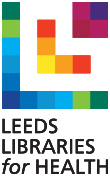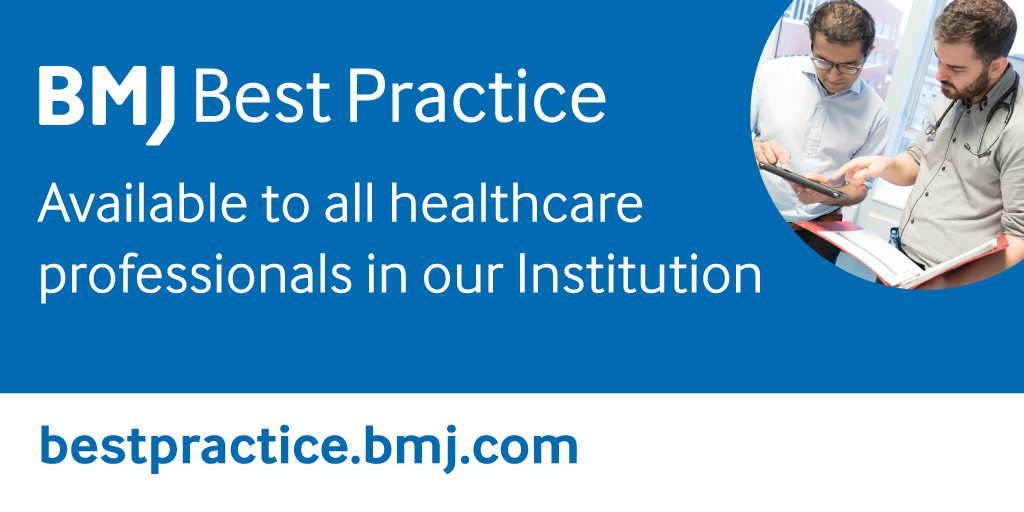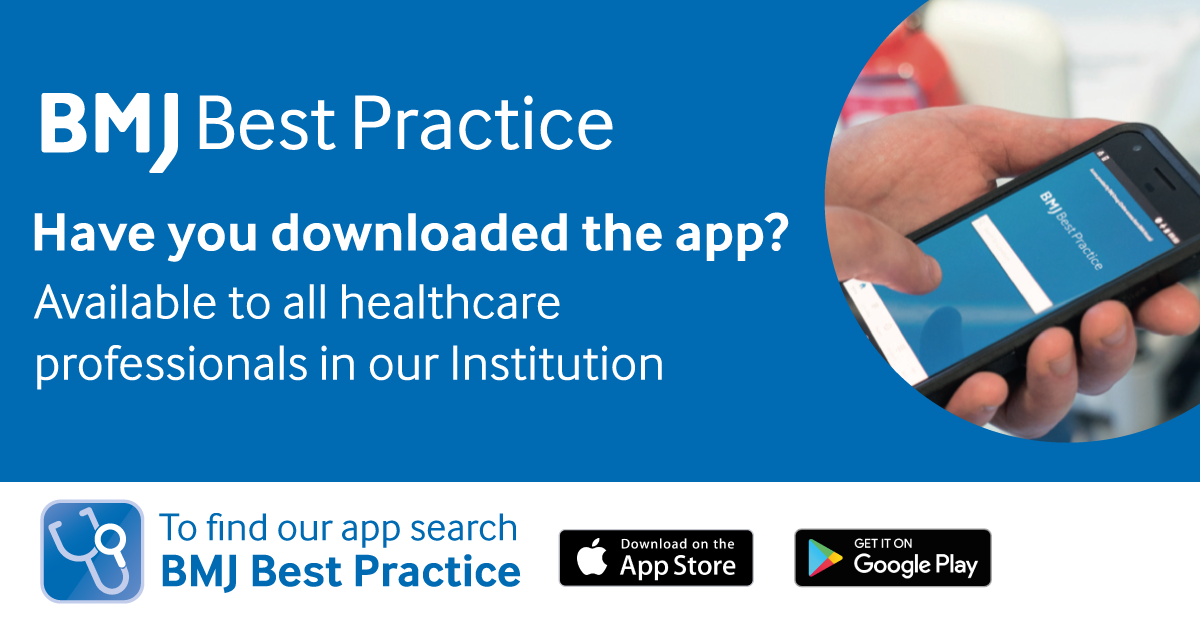BMJ Best Practice
BMJ Best Practice is a decision support tool for use at the point of care
What does BMJ Best Practice do?
This resource combines the latest research evidence, guidelines and expert opinion in a step-by-step approach and covering prevention, diagnosis, treatment and prognosis.
What information is available?
BMJ Best Practice contains:
- Information on thousands of diagnoses and diagnostic tests.
- Seamless links to drug formularies for comprehensive drug information.
- Over 4,000 diagnostic and treatment guidelines including NICE guidelines.
- Over 200 plain language patient information leaflets to support treatment options.
- Full reference links and over 3,500 colour images.
When should I use BMJ Best Practice?
BMJ Best Practice is your instant second opinion and as it is structured around the patient consultation it presents the required information just as it is needed.
Do I need a password?
To access BMJ Best Practice you will need an NHS OpenAthens Username and Password unless your are working on Trust networks at LCH, LTHT or LYPFT, in which case no OpenAthens account is required.
How do I access BMJ Best Practice?
You can access BMJ Best Practice at https://bestpractice.bmj.com/. (Please note that if you are working on the Trust networks at LCH, LTHT or LYPFT, no OpenAthens account is required.)
If you are using the account outside of the Trust network you will need to use the following link https://bestpractice.bmj.com/oac and login with your OpenAthens Username and Password.
It is strongly recommended that once you have accessed BMJ Best Practice for the first time, you set up a personal account. This is required if you want to use the BMJ Best Practice app (it is only needed once), as well as enabling you to get CME / CPD certificates for time spent on BMJ Best Practice.
You can download the app via the App Store or the Google Play Store. Select the app, and when prompted, use your BMJ Best Practice personal account details to sign in and download the content.


